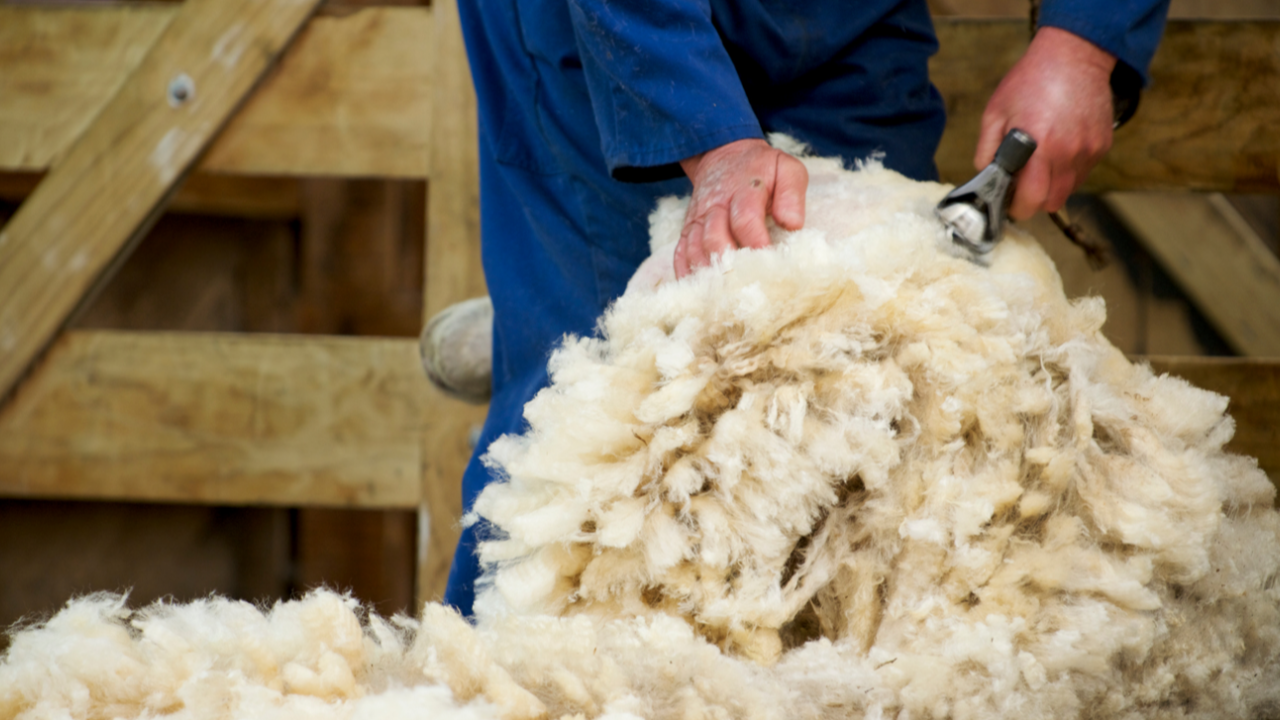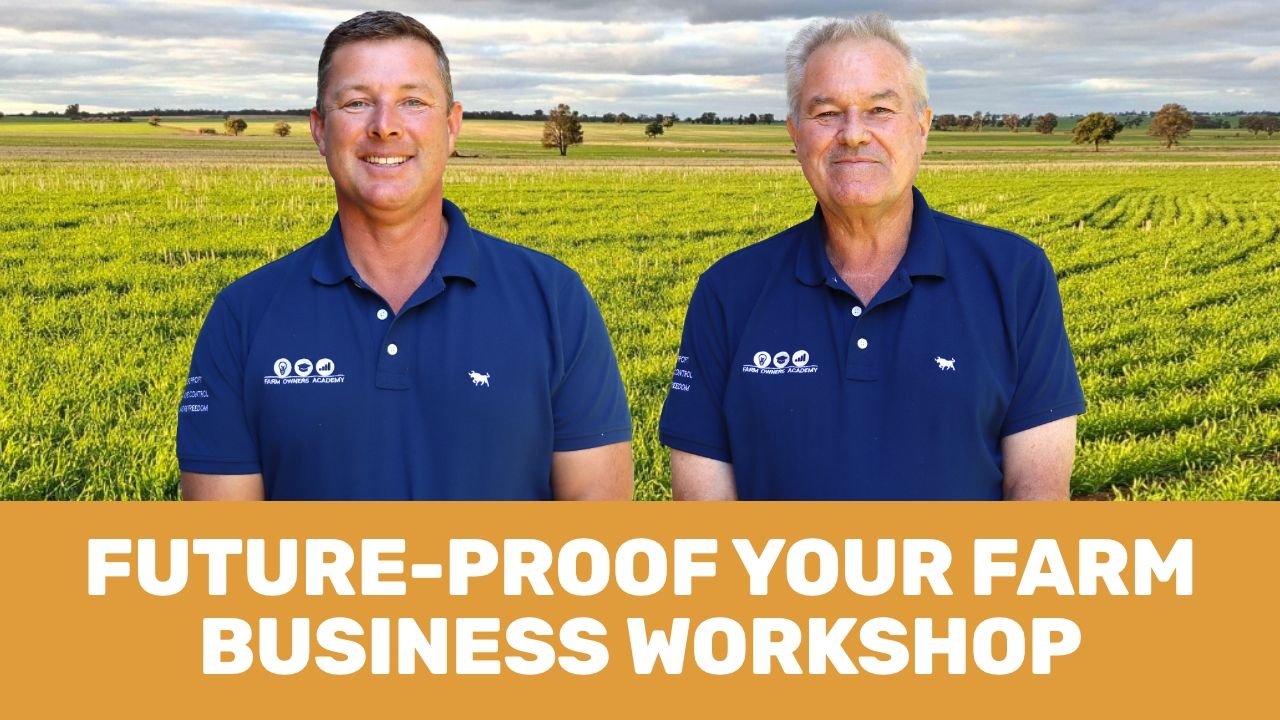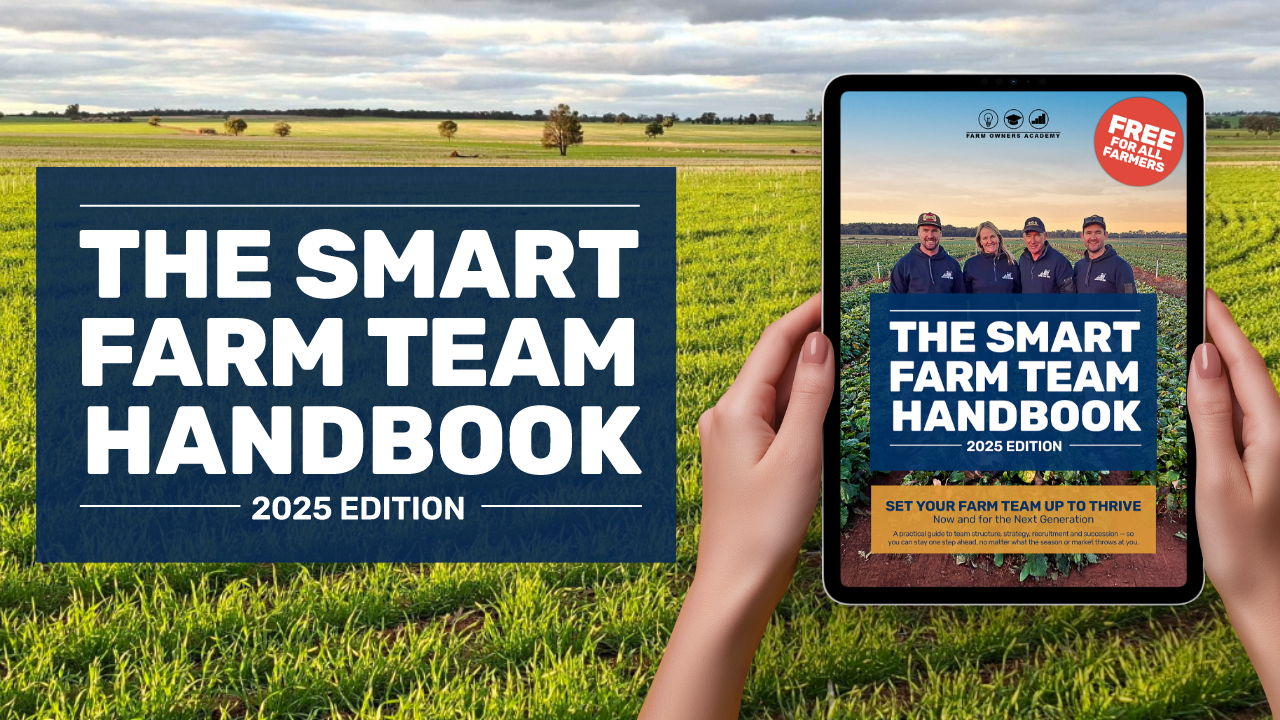Every Farmer Avoids This...and It Costs Them Everything.
Jul 22, 2021
^^ This is a countdown to the day you hang up your Akubra for the last time and head to the great farm in the sky.
Okay, maybe not the exact day.
But the reality is, all of us have a countdown timer like this…we just don’t spend much time looking at it.
Forgive us for being so blunt here…
But one day, you will die, and your farm WILL pass into new hands.
The question is:
Will you be ready?
Most farm owners avoid thinking about succession planning until it’s too late. They (understandably) don’t want to think about death or retirement so they put it off.
And as a result, the succession plan never truly gets sorted out, resulting in all kinds of headaches…
Kids left to untangle complicated finances that add so much stress to their lives.
People feel cheated out of what they feel is fair. Maybe one family member spent years on the farm, toiling away to build up the business, only to have their other siblings take a big share of it because there’s no real plan in place.
Sometimes family members stop speaking to each other altogether, tearing the family apart with no reconciliation in sight.
That’s why it’s so important to start thinking about succession planning NOW, even if you don’t think you need to yet.
And that’s what today’s blog post is all about. You just need to answer four simple questions to start a smooth succession process.
These 4 questions will help you even if:
- You’re decades away from retirement
- Your farm is a financial disaster right now
- You have conflicting personalities within your family
- You have no idea where to start with succession planning
- You were handed a mess of a farm and your parents made huge mistakes with succession
There’s that old saying: “Only two things are certain in life: death and taxes.”
So let’s normalise this for a minute and get real about what will happen after you leave the farm, okay?
We promise, it’s easier than you think to get started. And your family will be unspeakably grateful you put the time into this now to keep things stress-free in the future.
4 questions to make succession planning simple
1. What is your ideal outcome?
The first step is to get clear and specific about the best outcome you can imagine.
Even if your dream feels very far from your current reality, that’s okay. Just think about the situation that would make you happy to hand over your farm.
A few things to consider:
How much money do you need to retire?
At what age do you want to retire?
Who will take over operations on the farm?
Will your kids split the farm equally? What is the percentage breakdown? How much money do you need outside the farm business to make this equitable?
Will just one of the kids take over the farm, with the others inheriting something else?
Will the farm be sold, so the family can split the money from the sale?
You want to ask all affected parties what their ideal outcome is, too. Don’t assume you know what your kids want!
Too often, we see kids who don’t get what they want when their parents pass away. Either they secretly want to be part of the farm and are left out of the farm’s succession plan…or they secretly want to leave the farm and end up being responsible a farming business they aren’t passionate about.
That’s why you need to ask anyone affected by succession what their ideal outcome would be. You may not be able to give everybody exactly what they want (and that’s okay) but it’s important to at least know what people want.
2. What does your current situation look like?
Next, it’s time to get realistic by looking at your farm’s numbers. Understanding your financial picture is an important step in smooth succession planning.
Get clear on the key financial figures of your farm, such as:
What assets do you have?
What are your fixed and operating costs?
How much profit does the business make each year, on average?
If there isn’t any profit, what can you do about it?
What is the current net worth of the farming business?
What kind of salary are you paying yourself now?
How much money do you have in any retirement accounts (or other assets or accounts that can
be sold to fund your retirement?)
If you’re not a finance guy, don’t worry. We’ve got a free cheat sheet on the 10 financial ratios you need to know for your farming business.
>> Click here to download your free financial cheat sheet to get clear on your numbers
(We’ll also be sharing a heap of free education over the coming weeks to help you feel more in control of your finances. Click here to sign up for email updates to get these free tips delivered straight to your inbox.)
3. How can you bridge the gap?
So. You know where you’re starting from and where you want to go.
The next step is to make a plan to get from here to your ideal outcome.
This is where you make your PLAN.
This doesn’t have to be a one-year, five-year, or even ten-year plan. It can be 30 years in the future, if that’s when you’ll be handing things over!
It’s important to keep an open mindset while you’re creating your plan. If you catch yourself saying, “I’ll never be able to do that”…stop! Instead, get curious and say, “I may not be able to achieve everything I want. But how can I get as close to that ideal picture as possible?”
Make sure to consider ALL your options here. It’s empowering to have a variety of choices, rather than feeling stuck with just one.
For example, let’s say your farming business is in dire straits…
One option is to spend the next 20 years getting the farming business to run like clockwork, so it’s ready to sell or hand over to your kids when you retire.
Another option is hiring staff to manage the farm for you. Our clients Cheryl and Tim are doing exactly this and it’s working out great for them. Check out their story below:
RELATED POST: How Tim & Cheryl are Creating a Freedom Farm
A third option is to sell everything tomorrow. You could take some money for retirement and then hand over a traditional inheritance to your kids. That may be the best option for everybody involved, especially if your kids don’t want to take over the farm or if you’re not interested in working on the business side.
This comes back to Step 1 and understanding whether your kids would rather have the farming business or have the money and freedom to walk away. They’ll appreciate having a choice rather than being handed something they may not want.
4. Have I communicated any updates with all affected parties?
This is a bonus step. Make sure to keep communication open continually.
It starts with one conversation asking people what their ideal outcomes are.
It continues by sharing financial information, keeping people in the loop of how the farm is doing as things grow and change.
It expands as you share your succession plan once you make it, so people know what to expect.
Ongoing communication is THE #1 most important part of the whole succession planning process. You can avoid so much frustration, resentment, and stress by keeping communication open with your family.
Even if not everybody gets what they want in the succession plan (you can’t always please everyone), they’ll respect how it happened because expectations were clear and spoken about in advance.
If you take nothing else away from this blog post, please let it be this:
Don’t wait. Start thinking — and talking — about succession NOW. It is the responsibility of the current owners to make sure this is done properly.
Start simply by asking your kids (and/or other people affected by succession) what their ideal outcome would be.
That’s it!
You don’t have to tell them whether their ideal outcome is possible. You just have to have an honest chat about what would be best for them.
Once you’ve got that, you’ve already made a good start on Question 1 above!
Remember, the best way to cure the succession issue is to give yourself enough time to create the succession you want. Start today.
And if there’s anything we can help with, we’re only an email away at [email protected].








